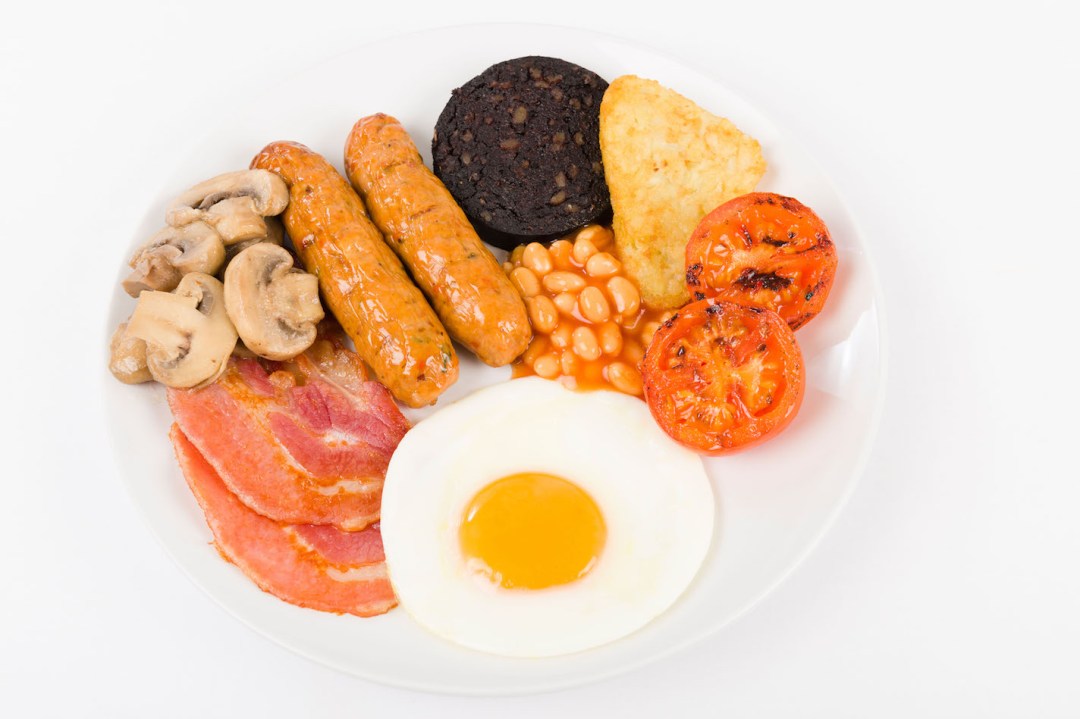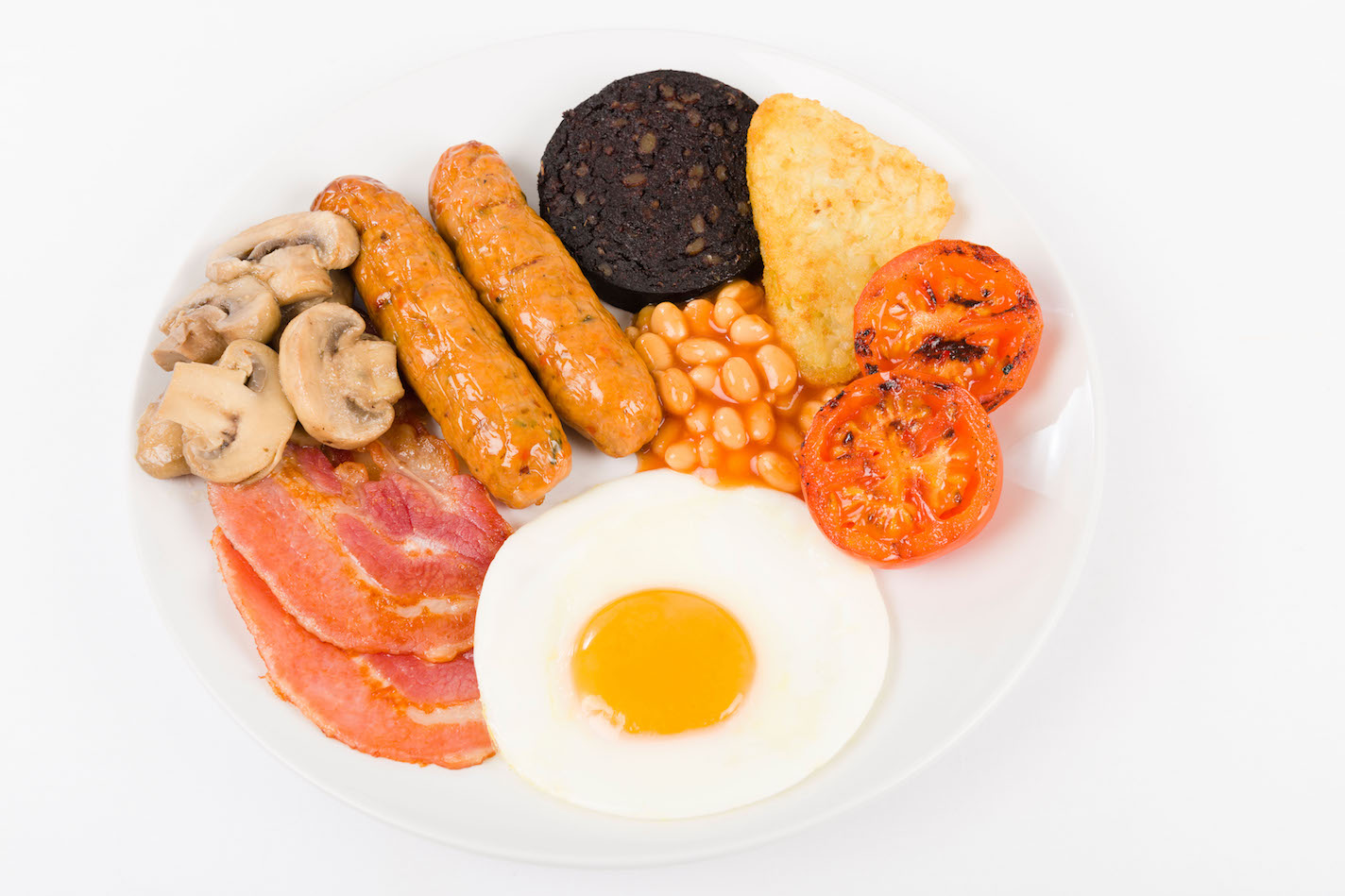The English Breakfast Society has cancelled the hash brown, calling it a ‘lazy American replacement to bubble and squeak’. Guise Bule de Missenden, the society’s founder (sounds European to me), warned that giving hash browns the stamp of approval would only encourage the adoption of other ‘unsuitable fillers like chips’, or worse ‘fish fingers’ and ‘kebab meat’. (Seriously Guise, unless you are an infant or a drunk, the latter two are not part of any normal diet.)
The boffins at the English Breakfast Society need to get with the times
‘Someone has to draw the line and say no to hash browns,’ he said. ‘They are served by those who lack pride in the full English breakfast tradition.’ Well, I’ve had enough. I’m taking a stand.
First off, we should be able to customise our morning plate of protein, carbohydrate and fat however we like, thank you very much. All are welcome as far as I’m concerned; black pudding, white sourdough, hey, even haggis there’s no discrimination here. Part of the beauty of a full English is its heft, its might – so why not let a crunchy slice of golden spud join the party? England is a happy multicultural country and that should be reflected in our greatest contributions to world cuisine. According to YouGov, as many as 60 per cent of us – the British public – believe hash browns are the most important part of the meal.
The EBS is slating them for not being traditional and threatening the continued existence of bubble and squeak. But what even is bubble and squeak? And do you know anyone who has ever eaten it? I certainly don’t. As Felicity Cloake, author of Red Sauce Brown Sauce: A British Breakfast Odyssey, pointed out, the full English has ‘already absorbed baked beans into its fold’. Speaking to the Times, she said: ‘I suppose us old-fashioned types must reluctantly accept this new phase of its evolution.’
Exactly Felicity, the boffins at the English Breakfast Society need to get with the times. An English breakfast typically consists of sausages, bacon, eggs, beans, tomatoes and fried mushrooms. And it’s not even that traditional. The earliest mention of a ‘full English’ is from 1933. The hash brown, however, has been around for much longer, with ‘hashed brown potatoes’ mentioned in Victorian-era cookbooks.
‘They seem to have first popped up as a breakfast item in the 1980s, which I suspect probably has something to do with McDonald’s serving them for breakfast from 1982 onwards,’ Cloake said. But that’s enough with the history lesson. Food isn’t about rules. It’s about much more than that. It’s personal. The full English is comfort food. It’s about nostalgia and familiarity.
Our sense of smell and taste are registered in the oldest parts of our brains. One of the reasons smell and taste trigger the strongest feelings of déjà vu is because these senses are processed near the part of our brain where memory is stored.
A hash brown takes me back to my childhood, having just about made it to McDonald’s before the 10.30 a.m. (or is it 11 a.m.?) cut off; holding this glorious little thing in its individual paper sachet, covering it in ketchup and chomping through its crisp outer layer into a fluffy core of steamy hot potato. Pure joy. If I can be reminded of that as part of my full English on a Sunday morning, who’s to tell me I’m wrong?







Comments